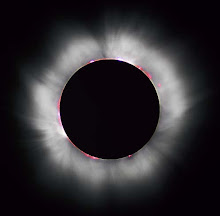As can be seen below in the list of cross references from
“The Comprehensive New Testament” – the Trinity was known to Judaism in the Old
Testament before the New Testament was written. Judaism encompasses several
sects including Pharisees, Sadducees, Essenes, Philo, the Qumran sect, the
followers of John the Baptist (Mandeans and Sabians), the Rephaim, etc. The
references below indicate that Philo who was a Jew born before Christ knew of
the Trinity, believed in it and wrote about it. Furthermore, the Talmud cross
references below indicate that even the Pharisees knew about the Trinity and
despite it being supported by the literal interpretation of the text in Genesis
they rejected the literal meaning.
Babylonian Sanhedrin 38b - Rabbi Yoḥanan says: Any place in
the Bible from where the heretics attempt to prove their heresy, i.e., that
there is more than one god, the response to their claim is alongside them,
i.e., in the immediate vicinity of the verses they cite. The verse states that God
said: “Let us make man in our image” (Genesis 1:26), employing the plural, but
it then states: “And God created man in His image” (Genesis 1:27), employing
the singular. The verse states that God said: “Come, let us go down and there
confound their language” (Genesis 11:7), but it also states: “And the Lord came
down to see the city and the tower” (Genesis 11:5). The verse states in the
plural: “There God was revealed [niglu] to him when he fled from the face of
his brother” (Genesis 35:7), but it also states in the singular: “To God Who
answers [haoneh] me in the day of my distress” (Genesis 35:3)… Rabbi Yoḥanan
cites several examples where the counterclaim is in the same verse as the claim
of the heretics. The verse states: “For what nation is there so great that has
God so near to them as the Lord our God is whenever we call upon Him?”
(Deuteronomy 4:7), where the term “near” is written in plural, kerovim, but the
term “upon Him” is written in singular. Another verse states: “And who is like
Your people, like Israel, a nation one in the earth, whom God went to redeem
unto Himself for a people?” (II Samuel 7:23), where the term “went” is written
in plural, halekhu, but the term “Himself” is written in singular. Another
verse states: “I beheld till thrones were placed, and one that was ancient of
days did sit” (Daniel 7:9); where the term “thrones” is written in plural,
kharsavan, but the term “sit” is written in singular… The Gemara clarifies:
This works out well for almost all the verses, as they describe an action taken
by God, but what is there to say concerning the verse: “I beheld till thrones
were placed”? The Gemara answers: One throne is for Him and one throne is for
David, i.e., the messiah, as it is taught in a baraita: One throne is for Him
and one throne is for David; this is the statement of Rabbi Akiva. Rabbi Yosei
said to him: Akiva! Until when will you desacralize the Divine Presence by
equating God with a person? Rather, the correct interpretation is that both
thrones are for God, as one throne is for judgment and one throne is for
righteousness… Rather, the correct interpretation is that while both thrones
are for God, one is for a throne and one is for a stool. There is a throne for
God to sit upon, and a stool that serves as His footstool… A certain heretic
said to Rav Idit: It is written in the verse concerning God: “And to Moses He
said: Come up to the Lord” (Exodus 24:1). The heretic raised a question: It
should have stated: Come up to Me. Rav Idit said to him: This term, “the Lord,”
in that verse is referring to the angel Metatron, whose name is like the name
of his Master, as it is written: “Behold I send an angel before you to keep you
in the way and to bring you to the place that I have prepared. Take heed of him
and obey his voice; do not defy him; for he will not pardon your transgression,
for My name is in him” (Exodus 23:20–21)… The heretic said to him: If so, if
this angel is equated with God, we should worship him as we worship God. Rav
Idit said to him: It is written: “Do not defy [tammer] him,” which alludes to:
Do not replace Me [temireni] with him. The heretic said to him: If so, why do I
need the clause “For he will not pardon your transgression”? Rav Idit said to
him: We believe that we did not accept the angel even as a guide [befarvanka]
for the journey, as it is written: “And he said to him: If Your Presence go not
with me raise us not up from here” (Exodus 33:15). Moses told God that if God
Himself does not accompany the Jewish people they do not want to travel to Eretz
Yisrael… The Gemara relates: A certain heretic said to Rabbi Yishmael, son of
Rabbi Yosei: It is written: “And the Lord rained upon Sodom and upon Gomorrah
brimstone and fire from the Lord out of heaven” (Genesis 19:24). The heretic
raised the question: It should have stated: From Him out of heaven.
Genesis 1:26,
Genesis 3:22,
Genesis 19:24
Philo[Appendices A Treatise Concerning the World (1)],
Philo[On Abraham (56)], Philo[On Abraham (132)],
Philo[On Flight and Finding (68-71)],
Philo[On the Confusion of Tongues (146-147)],
Philo[On the Confusion of Tongues (168-179)],
Philo[On the Migration of Abraham (132-133)],
Rabbinic[Babylonian Menahot 110a],
Rabbinic[Babylonian Sanhedrin 38b],
Rabbinic[Bereshith Rabba viii p. 22d],
Rabbinic[Debarim Rabba ii: 33 p. 104c],
Rabbinic[Jerusalem Berakhot i: 8 (3c)],
Rabbinic[Shemoth Rabba xxix 5 p. 51b],
Rabbinic[Siphra 4c],
Rabbinic[Siphri Numbers 143 p. 54]
By J. Clontz – Editor of The Comprehensive New
Testament




